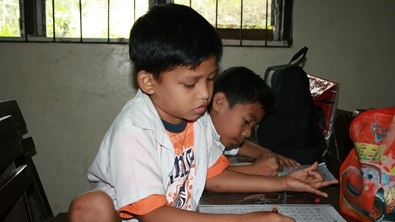Solution
The National Program Support for Basic Education (NPSBE) played an important catalytic role in implementing the government’s Basic Education Reform Agenda (BESRA) over a six-year period (2006-2012). The project was the first Bank operation in the country that adopted a national program support approach which built the foundation for policy and system-wide reforms. This resulted in the more effective use of resources that focused on implementing targeted reforms. The project supported strategic elements and key reform thrusts of BESRA that included school-based management, teacher standards and quality assurance.
The project likewise facilitated reforms that promoted decentralization and rationalization of the basic education system that in turn improved equity, quality, governance and financing of services. It also helped government better coordinate donor assistance and mobilize resources from the private sector. An innovation of the project was that it was implemented by the government itself through the Department of Education’s regular staff and used the country’s procurement and financial management systems.
Results
As of 2014, the project contributed to achieving encouraging results under BESRA:
• Between 2005 to 2013, spending for public education almost tripled while spending per basic education student increased by around two-thirds, resulting in increased resources to improve access to basic education services especially of the poor and disadvantaged and to improve quality of learning;
• The elementary participation rate for 6-11 year olds increased from 88.58% in 2005 to 95.24% by 2013.
• The overall enrollment numbers also improved from 13 million to 14.4 million from 2005 to 2013. This is a substantial figure given that a substantial portion of the enrollment increase was largely from the poorest households.
• The Grade 6 mean percentage score in math, science, Filipino, English and social studies improved from 54.66% in 2005 to 66.9% by school year 2012-2013, based on the National Achievement test.
• The high school participation ratefor 12-15 years improved from 61.16% from 2005 to 64.8% by 2013.
• High school enrollment numbers also showed improvement from 6.3 to 7 million from 2005 to 2013. This is also significant since there were more children attending school from poor households.
• There were improvements in math, filipino and social studies from 46.66% in 2005 to 47.93% by 2013 based on the National Achievement test scores for Year 2.
(Sources: ICR, June 26, 2013; 2010 census data; Reyes, C., Tabuga, A., Mina, C. and Asis, R (2013. Promoting Inclusive Growth Through the 4Ps. Philippines Institute of Development Studies)

